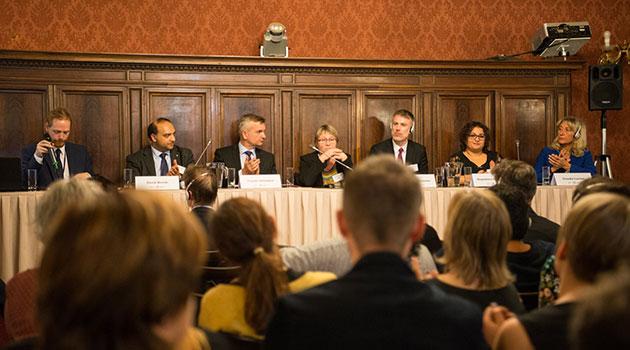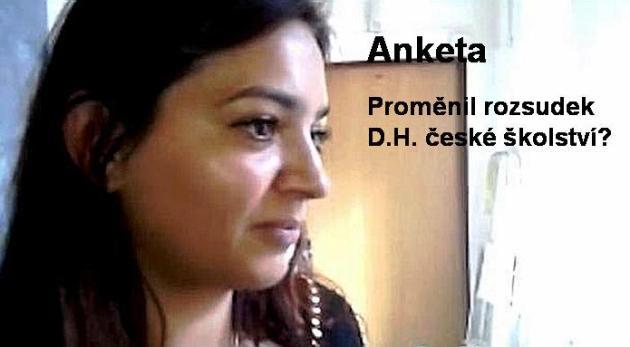Jolana Šmarhovyčová: Roma in the Czech Republic are demotivated because employers reject even educated Roma

Jolana Šmarhovyčová, an organizer from the Romani community in Ostrava, has given an interview with the Czech News Agency in which she said that the discrimination against Romani children in the Czech schools is the same as it was 10 years ago when the European Court for Human Rights found the Czech Republic had violated the right to education of 18 Romani children by recommending they enrol into segregated “special schools”. In her view, Romani parents would be more interested in better educations for their children if the majority society could show them more respect and if they could become better-informed.
Šmarhovyčová was attending an international conference in Prague entitled “Together at School: Further Steps in the Education of Romani People in the Czech Republic” and told the Czech News Agency that it is difficult to motivate Romani parents about their children’s education when they doubt the importance of the role education might play in their lives. “Romani people are demotivated,” she said.
“Their children’s dreams are being defeated. They know that even if they are educated, it is not easy to find a job as a Romani person,” the community organizer said.
According to Šmarhovyčová, Romani parents in the Czech Republic would be more motivated to support their children’s educations if they were to feel that the majority society perceives them in a more positive light. Together with other Romani volunteers, she is doing her best in her own community to initiate and spread activities through which Romani people can learn more about the meaningfulness of education.
On the other hand, in her view, politicians should clearly distance themselves from discrimination and racism and should not succumb to such moods in society. She said Romani parents frequently do not know what the difference is between various kinds of schools in terms of the quality of the education they provide.
“When the ‘practical schools’ were still instituted, these parents did not even know their children were attending that kind of school,” the community organizer pointed out, adding that it is necessary to explain the system to Romani parents. Šmarhovyčová also noted that all children should have the same access to education irrespective of the degree of their parents’ interest.
“It’s a child’s right. Children living in children’s homes do not have parents in their lives, but they are educated nonetheless,” she pointed out.
The opinion is frequently voiced in Czech society that Romani people do not care about education, but according to Olga Kusá from the Czech Government Agency for Social Inclusion, that is not true. Speaking at the conference, Kusá warned that this stereotype is a strong one that must be refuted in Czech society.
It is apparently not easy to find a way to do that. Experts in educating children together agreed at the conference that it is necessary to explain the advantages of doing so to all parents, irrespective of whether they themselves come from the “majority” society, from a minority community, or have a child living with disabilities.
The schools, however, must also improve the quality of the education they provide and create the kinds of conditions in which children will learn together irrespective of their abilities or origins. In the Czech Republic there are an estimated 300 000 Romani people who comprise approximately 3 % of the population.
Despite efforts to end the education of Romani people in separate, sub-standard conditions, human rights organizations say Romani children continue to encounter such treatment. During the 2016/2017 school year, while Romani children comprised roughly 4 % of the pupils in the Czech Republic, they also comprised almost 15 % of the population of the so-called “special schools” outside the mainstream.
Almost one-quarter of Romani boys and girls attended a primary school in 2016/2017 where most of their fellow pupils were also Romani children. Activists warn that in such arrangements Romani children acquire substandard educations that condemn them to poorly-paid employment and a life of social exclusion as adults.
